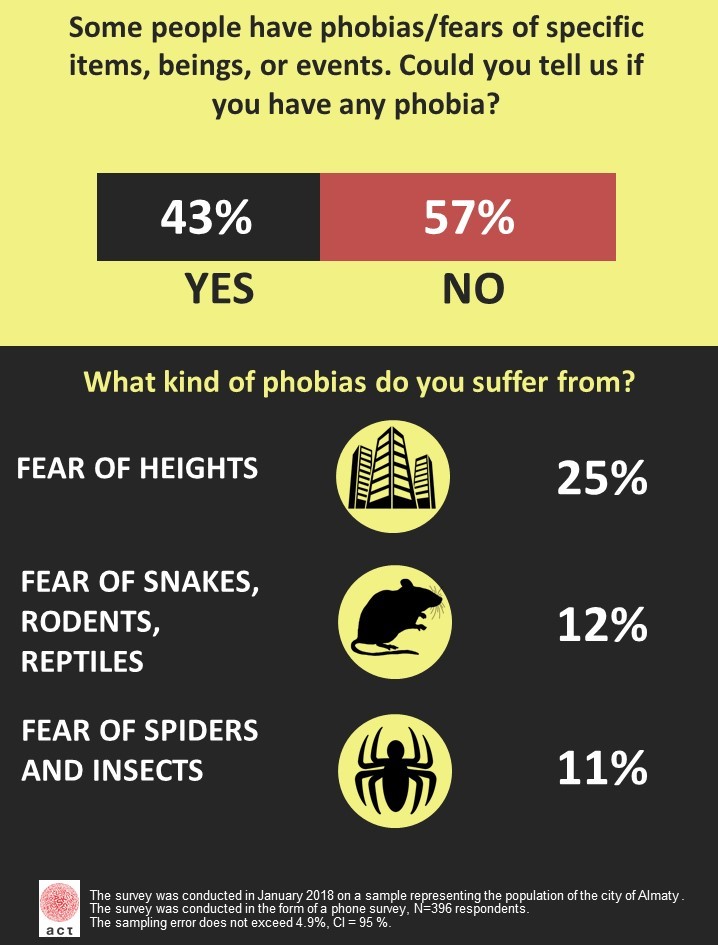




ACT Kazakhstan was investigating whether residents of Almaty have phobias/fears. Let us remind you that phobia is a current fear of imaginary events. The survey showed that 43% of the respondents had different phobias (fears); accordingly, 57% had no phobias. Women were found to be more tend to phobias (64%); the age group most tending to phobias was 25-35 years (34%).
The survey revealed a long list of phobias that haunted Almaty residents. Such a variety of phobias was mainly due to a small percentage of people suffering from this or that phobia. Such small shares of specific phobias characterize the very concept of phobia – this is something that terrifies a particular person while the others remain indifferent to it. In total, there about 1,000 known different phobias in the world. The study of phobias of Almaty residents showed that most of the people suffered from the fear of heights (acrophobia), which is a form of the fear of space. 12% experienced a fear of snakes, rodents, reptiles. 11% of the adult population of Almaty had a fear of spiders and insects (arachnophobia).
Below is the list of other phobias identified by the survey:

The survey was conducted in January 2018 among the population of the city of Almaty on a sample representing the city population. The survey was conducted in the form of a personal interview. The sample size was 396 respondents. The sampling error does not exceed 4.9%, CI = 95%. The use of survey materials is permitted with the obligatory mention of the author of the survey.
In March 2018, ACT Kazakhstan conducted a survey aimed to determine the place of religion in the life of Kazakhstanis. A bit more than half of the respondents (51%) answered the religion did not play an important part in their life. It is worth noting that most of those respondents were aged 18 to 27; that is, they represented the younger generation.
The survey revealed the following attitudes of the interviewed Almaty residents towards religiosity:
ACT Kazakhstan has also clarified the attitude of the respondents to the manifestation of religious identity:
The survey was conducted in March 2018 among the population of the city of Almaty on a sample representing the city population. The survey was conducted in the form of a personal interview. The sample size was 404 respondents. The sampling error does not exceed 4.9%, CI = 95%.The use of survey materials is permitted with the obligatory mention of the author of the survey.